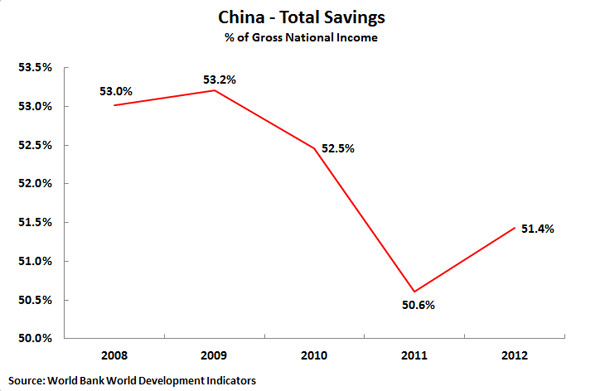China's changing development pattern
china.org.cn / chinagate.cn by John Ross, February 12, 2014 Adjust font size:
This interrelates with the main challenge facing China's domestic economy. On the global level, the fact that trade plays a bigger role in China's economy than it does in the United States maintains strong competitive pressure on China's companies, forcing them to increase their efficiency. Nevertheless, the transition from competitiveness achieved via low wages to that based on innovation and technology is one reason why, as economies become more advanced, investment plays an increasing role in their growth. International studies show on average investment accounts for 57 percent of growth in an advanced economy, compared to only 52 percent in developing economies. As investment must be financed by saving by companies, households and government, maintaining high savings and ensuring its transformation into investment, is China's most fundamental macroeconomic task.
It is in this area that the international financial crisis created economic problems for China. As the chart shows, under the impact of the international financial crisis China's savings rate fell from 53.2 percent of Gross National Income, to 51.4 percent in 2012 (the latest available data). Industrial profitability rose less rapidly than GDP.

There is no indication that savings levels rose significantly in 2013. As savings are the supply of capital, given these have fallen, either interest rates, the price of capital, must rise or the demand for capital, in other words investment levels, must fall.
Consequently China's rising interest rates in 2013 and 2014, increasing cost of company and government borrowing, and the interest rate spikes in interbank lending in June and December of 2013, reflected this. It is thus a major challenge to rebuild China's savings rate in order to finance the high levels of investment needed for upgrading the nation's development path.
This in turn also affects issues such as environmental protection. Greater environmental protection, to eliminate smog for example, requires high investment -- given that non-polluting power stations and factories are more expensive than polluting ones.
In only a decade, China, by international classifications, will become a high income economy with growth becoming even more dependent on investment in innovation, both technological and management, and even less on low wages. China made it through the international financial crisis with greater success than any other major economy. However, China continues to face for a significant period a "Great Stagnation" in the advanced economies. Its development priorities will need to reflect this.


